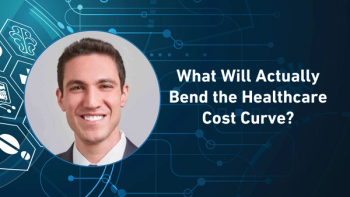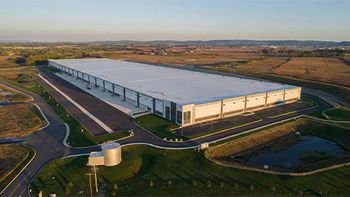
LogiPharma USA 2025: How the Pharmaceutical Industry Collaborates to Boost Resilience Across the Global Supply Network
Krenar Komoni, founder and CEO of Tive, explains how the pharmaceutical industry’s transition from passive to real-time temperature control creates short-term challenges but will ultimately enable AI-driven automation, lower costs, higher quality, and better customer experiences.
In a recent panel discussion on supply chain security, Krenar Komoni, founder and CEO of Tive, emphasized the growing importance of collaboration among vendors, logistics providers, and technology companies to combat evolving threats in the industry. The conversation highlighted two main types of theft impacting the supply chain: direct theft, where goods are physically stolen from trailers or containers, and strategic theft, a more sophisticated form involving social engineering tactics where fake carriers impersonate legitimate ones to intercept shipments.
To address these risks, panelists discussed a multi-layered security approach. Tools like carrier vetting software, GPS trackers, seals, and even armed escorts were identified as part of a tiered defense system. Komoni stressed that no single solution can fully secure a supply chain; rather, companies must integrate multiple protective measures into their operations to build resilience.
A major highlight of the discussion was the shift in the pharmaceutical industry from passive monitoring to real-time tracking, accelerated by new technologies like the Solo Pro device. This transition enhances visibility and responsiveness in managing high-value or sensitive shipments.The panel also explored how closer partnerships between logistics providers, shippers, and tech firms are strengthening the supply chain. This “triangle” of collaboration allows for better implementation and use of advanced technologies, increasing trust and efficiency across the board.
Looking ahead, Komoni noted that AI and automation will play a larger role in supply chain security, helping to predict threats and streamline operations in a rapidly evolving environment. The session concluded with a clear takeaway: securing the supply chain requires continuous adaptation, strong relationships, and layered, technology-driven solutions.
A transcript of Komoni’s conversation with PC can be found below.
PC: How is the industry collaborating in order to help ensure that there is a boost in resilience across the global supply network?
Komoni: I think one area that we really see the close collaboration is logistics service providers working very closely with shippers, which they've always have, but they've started to really work very closely with technology providers like Tive, and we've seen that triangle become stronger than ever before, and the reason is because they're seeing that if a logistics service provider starts to embrace the technology and actually start utilizing that technology, they can help the shipper, and the shipper can build higher trust with logistics service provider, and the technology providers can provide that technology to the logistics service provider, but the shipper gets the benefit.
So this triangle is becoming really strong, and that collaboration, I believe it just enhances the overall industry, and makes for better experience for everybody. One thing that Chuck mentioned, which was really interesting, is like security is not a revenue-generating business, right? Or a thought like security is something you have to do, you want to do, and you want to look at various costs. And every layer that I mentioned has its own costs associated with it. But if you can start, like I said, with free where you build the trust and the relationship with all your vendors, all your logistics service providers, and then you keep adding lower cost things first, and then continue to see to at least make it more difficult for everybody to penetrate to your supply chain.
Newsletter
Stay ahead in the life sciences industry with Pharmaceutical Commerce, the latest news, trends, and strategies in drug distribution, commercialization, and market access.




